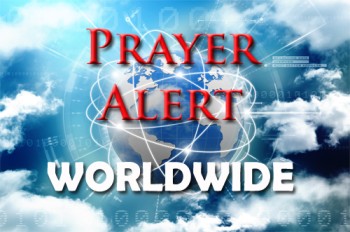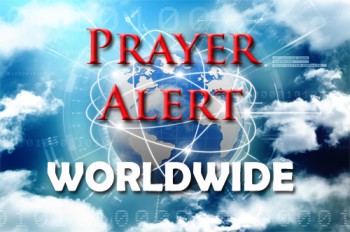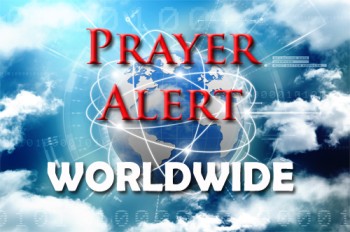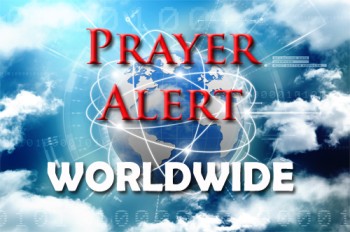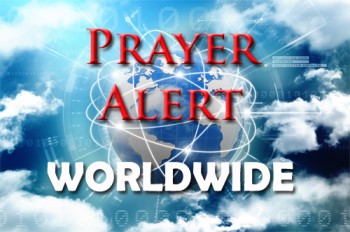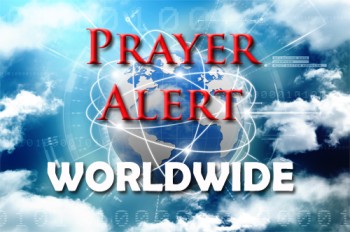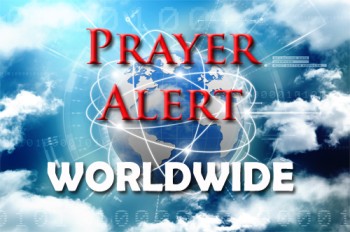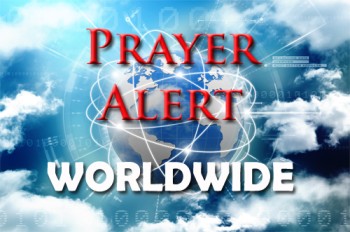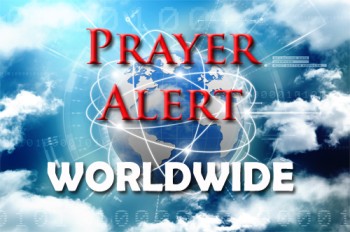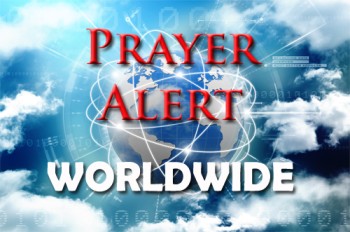Displaying items by tag: Asia
Syria: US moves 150 IS prisoners, thousands to follow
US forces have begun transferring IS prisoners out of Syria, moving 150 detainees to Iraq under plans that could see up to 7,000 relocated. The move follows growing instability after Kurdish-led Syrian Democratic Forces (SDF) withdrew troops from parts of northeast Syria, raising concerns over the security of prisons and detention camps holding thousands of IS members and affiliates. US officials said recent unrest allowed around 200 low-level fighters to escape one facility, though many were later recaptured. More than 10,000 IS fighters remain imprisoned in Syria, alongside thousands of women and children connected to the group. The transfers are being carried out in coordination with the Iraqi government as part of efforts to prevent a resurgence of IS and maintain regional security. The changes come amid a wider political shift, with Syria’s new government seeking to reassert control after the fall of Bashar al-Assad. A ceasefire has been agreed with the SDF, which has been urged to integrate into the Syrian state, marking a significant transition in security arrangements.
Pakistan: exports of rice rise significantly
Exports of rice from Pakistan rebounded strongly in December 2025, rising 14% month on month, driven largely by a surge of more than 50% in basmati shipments. Total exports reached 489,000 tonnes, allowing Pakistan to overtake Vietnam and become the world’s third-largest rice exporter for the month, behind India and Thailand. The UAE and China were the top destinations, while exports also expanded across Africa, Europe, and North America. A significant development was Pakistan’s growing presence in Central Asia, as exporters shifted to direct trade routes following Afghan border closures. Despite these gains, deep structural challenges remain, including intense global competition, policy inconsistencies, high logistics costs, and limited access to key markets such as Iraq and Turkiye. Encouraging signs include rising demand from Iran, Central Asia, and the USA, offering hope for sustained recovery if reforms follow.
Iran: Trump steps back from threats of military action over protests
Donald Trump has stepped back, at least temporarily, from threats of US military action against Iran, saying he has been assured that the killing of protesters has stopped and that no executions are planned. He said these assurances came from ‘very important sources on the other side’, though the claims have not been independently verified. Despite reports that over 3,400 have been killed during the recent anti-government protests and fears of imminent executions, Trump said he was unconvinced that military action would bring decisive change. He had been strenuously lobbied by leaders in the Middle East to not to go ahead with strikes which would be certain to lead to an Iranian counterstrike on US bases. Iranian officials have publicly denied plans for executions, and at least one expected execution has been postponed. While rhetoric has softened slightly, deep divisions over human rights abuses and Iran’s nuclear ambitions persist, leaving the situation fragile and unresolved.
Syria: government tells Kurdish forces to leave Aleppo after deadly clashes
Syria’s army has moved reinforcements to areas east of Aleppo after ordering Kurdish forces to withdraw, following deadly clashes which have killed over 100 and displaced as many as 150,000. The Islamist-led government is seeking to reassert control nationwide, but efforts to integrate the Kurds’ autonomous administration and forces into the state have stalled, despite an agreement reached earlier this year. Kurdish-led forces deny building up troops and accuse the government of launching fresh attacks, while Damascus insists it is responding to provocation. Limited skirmishes and artillery fire have been reported, raising fears of a wider confrontation. In Qamishli, the main Kurdish city in the country's northeast, thousands of people demonstrated, accusing the government of breaking its promises and preparing a broader assault. With mistrust deepening, the situation remains volatile, threatening further suffering for civilians already exhausted by years of conflict. Christians in the region are asking for prayer: see
Japan: search for alternative rare earth sources to avoid reliance on China
Japan has launched a bold effort to secure its future supply of critical minerals by sending a research vessel to mine rare earth elements from the deep seabed near Minamitori Island. The month-long mission marks the first attempt anywhere in the world to lift mineral-rich mud from six kilometres below the ocean surface. This project reflects Japan’s growing urgency to reduce reliance on China, which currently dominates global rare earth supply and has recently banned exports of items destined for Japan’s military. Rare earths are essential for cars, electronics, renewable energy technologies and defence equipment, making supply disruptions a serious economic and security concern. Since a similar crisis in 2010, Japan has diversified imports, invested overseas and built stockpiles, yet still remains heavily dependent on China. Domestic seabed mining could provide a long-term solution, though it is costly, technically complex and years away from full production.
Thailand: at least 31 dead after crane collapses on train
A devastating rail disaster in northeast Thailand has left at least 31 people dead after a construction crane collapsed onto a speeding passenger train, causing it to derail and burst into flames. The accident occurred as the train was travelling from Bangkok to Ubon Ratchathani, carrying nearly 200 passengers. More than sixty were injured, several critically, as fire engulfed damaged carriages. The crane was part of a Thai-Chinese high-speed rail project, part of an ambitious plan to connect China with south-east Asia. The company concerned was involved in the construction of a Bangkok building which collapsed in March during an earthquake. Witnesses described scenes of chaos, with carriages torn open and rescue workers scrambling to reach trapped passengers. Authorities have ordered a full investigation, while political leaders have vowed accountability. The tragedy has shocked the nation and renewed public scrutiny of large infrastructure projects and the human cost when safety is compromised.
Colombia: Trump will meet Petro ‘in the near future’ despite recent threats
Donald Trump has said he will meet Colombian president Gustavo Petro at the White House in the near future, amid days of rising regional tensions. The announcement followed the US operation in Venezuela on 4 January which seized president Nicolás Maduro, with Venezuelan officials claiming a far higher death toll (over a hundred killed) than initially reported. Trump said he had discussed drugs and other disputes with Petro and welcomed a calmer tone, after previously issuing public threats. Petro warned Colombia would resist any US military action, even as Washington tightened control over Venezuelan oil sales and maintained sanctions on Bogotá, claiming that cocaine trafficking in Colombia had ‘exploded to the highest rate in decades’. Secretary of state Marco Rubio will help to arrange the talks. Meanwhile, Venezuela’s interim leader Delcy Rodríguez said that Maduro’s kidnapping was an unprecedented ‘stain on our relations’, but added: ‘Venezuela is open to energy relations where all parties benefit’. Meanwhile, the USA has seized two sanctioned oil tankers, one of them flying a Russian flag: see
India: opposition party lambasts Modi after Trump raises tariffs
India’s opposition Congress party has criticised Narendra Modi after renewed US warnings linking higher tariffs on Indian exports to continued purchases of Russian oil. Jairam Ramesh argued that a personality-driven foreign policy has failed to shield India from economic pressure. He said highly publicised displays of personal rapport with US leadership have not prevented repeated threats over trade and energy. Congress claims years of diplomacy have delivered few tangible benefits, leaving India vulnerable to sudden shifts in US policy. The criticism comes as Washington increases pressure on countries buying Russian energy amid ongoing geopolitical tensions. The government insists that purchasing discounted Russian oil is a sovereign decision needed for energy security and compliant with sanctions. While officials highlight strong defence, technology and trade ties with the US, critics warn that overreliance on personal chemistry weakens institutional diplomacy.
Gaza: infant dies of hypothermia in terrible weather
A humanitarian tragedy is unfolding in Gaza as a Palestinian infant has died from hypothermia amid severe winter conditions and ongoing restrictions on aid. Local health officials reported that two-week-old Mohammed Khalil Abu al-Khair succumbed to extreme cold after families were left without adequate shelter, heating, clothing, or fuel. Israel’s prolonged military campaign has destroyed much of Gaza’s infrastructure, forcing hundreds of thousands to live in tents or damaged buildings unable to withstand storms and freezing temperatures. Recent severe weather has flooded shelters, collapsed structures, and caused further deaths. Humanitarian agencies warn that Israeli restrictions on aid deliveries, including limits placed on UNRWA, are preventing lifesaving supplies from reaching civilians at scale. The child’s death underscores how the denial of basic necessities has turned winter itself into a lethal threat, particularly for children and other vulnerable civilians.
Afghanistan: hunger crisis deepens as aid funding falls short
Afghanistan is facing an escalating humanitarian emergency, as the World Food Programme has warned it cannot mount an effective winter response for the first time in decades. International aid has sharply declined since 2021, following the Taliban’s return to power, and has been further strained by earthquakes and other natural disasters. As a result, WFP estimates that it needs more than $460 million extra in order to assist six million of the most vulnerable people. Hunger is rising rapidly, with an estimated 17 million Afghans now food insecure, including millions recently deported from Iran and Pakistan. Children are bearing the heaviest burden: 3.7 million are acutely malnourished, one million severely so, and deaths are expected to increase during the harsh winter months when food access is lowest. Clinics and nutrition programmes are shrinking as funding dries up, leaving families with little support. Aid agencies warn that without urgent international action, preventable suffering and child mortality will continue to worsen.
